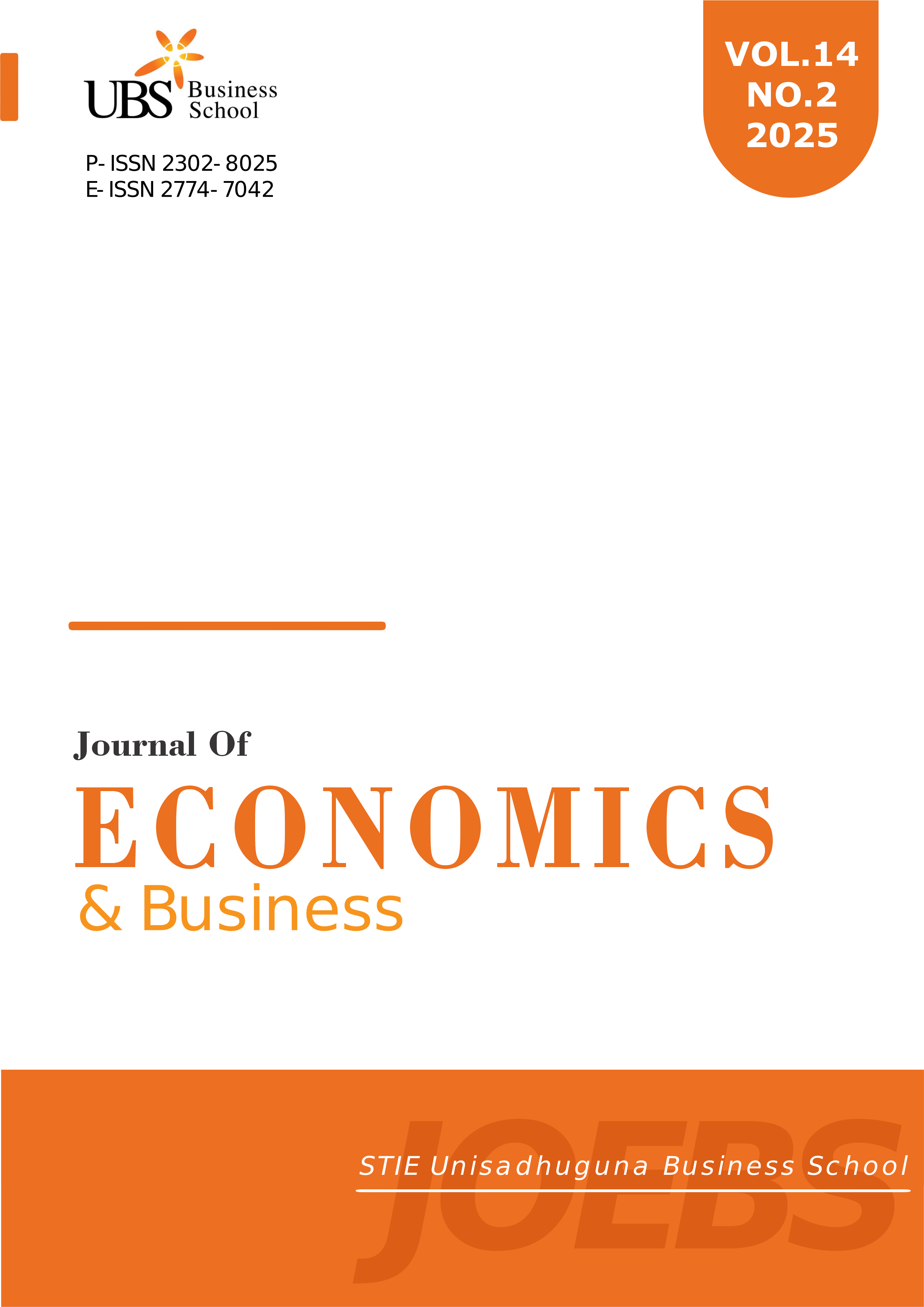The Impact of Workforce Agility and Self-Regulated Learning on Employee Performance: Evidence from a Wood Furniture Manufacturing Firm in Indonesia
DOI:
https://doi.org/10.52644/joeb.v14i4.2793Keywords:
workforce agility, self-regulated learning, employee performance, manufacturing industry, organizational adaptabilityAbstract
This study examines the influence of Workforce Agility (WA) and Self-Regulated Learning (SRL) on Employee Performance at a wooden furniture manufacturing company, CV. Mulya Pratama Indah, located in Cirebon, Indonesia. During its rapid development industrial transformation and increasing operational complexity, employees' ability to adapt quickly and engage in autonomous learning has become a critical determinant of organizational success. Using a saturated sampling method, this study collected data from 110 employees through a structure questionnaires. Data analysis was conducted using IBM SPSS Statistics version 25. Multiple linear regression analysis was conducted to uncover the relationships between the variables. The results revealed that Workforce Agility (WA) and Self-Regulated Learning (SRL) had a positive and statistically significant impact on employee performance. WA emerged as the more dominant predictor, highlighting the value of proactivity, adaptability and resiliency in dynamic production settings. Self-Regulated Learning (SRL), meanwhile, strengthened performance through self-regulated learning, goal setting, and strategic problem-solving. Simultaneously, these capabilities contributed to the adaptability of work energy and sustained productivity. These findings suggest that developing agility and autonomous learning among employees can be a strategic driver for enhancing organizational competitiveness, particularly in labor-intensive industries. Future research is encouraged to validate these results across various industry contexts and explore their longitudinal effects.




